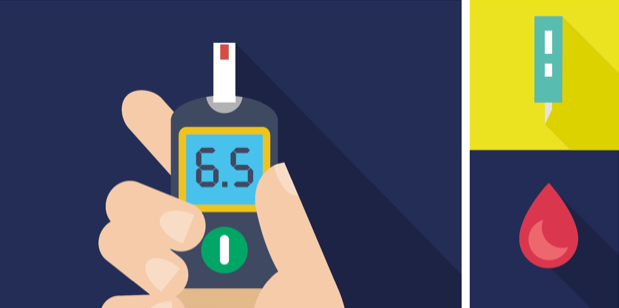Introducing a tailored Life Insurance policy, exclusively for diabetics

At MIAB, we pride ourselves on our industry knowledge, and ability to provide bespoke insurance and expert advice. Working with a variety of insurers, we strive to find a policy most suitable for your needs.
Typically, a number of insurers will consider diabetic clients, however this cover often relies upon a report from your GP, that can take weeks to be sent through and lengthening the time before the insurer can offer you terms. With these policies, terms are always offered with a percentage increase of the original quoted premium, the minimum usually around 50%, though as much as 300% of the original premium could be quoted*. Depending on your medical history, medication and HbA1c reading, you could even be declined.
However after a successful trial by the insurer, we are delighted to inform you we can now offer a new policy tailored to you as a diabetic, through Royal London.
Download More informationWhy should I take out a Life Insurance policy?
Life Insurance provides you, and your family with a vital safety net in the event of your death, or terminal illness**. It provides a tax-free lump sum, easing financial pressures such as funeral costs, remaining mortgage bills, or university fees.
By taking out a policy, you can rest assured your family would be financially secure should the worst happen.
I’m diabetic – how does the policy work?
The policy seeks to insure individuals with either Type 1 or Type 2 diabetes mellitus.
The application process is specifically tailored to your condition – so it won’t ask any unnecessary questions. We’ll let you know right away if your application is accepted, or if we need more information. Either way, if you meet the eligibility conditions – which check you’re not suffering from other serious conditions, such as cancer – you’ll be covered immediately.
When you apply, we’ll ask how well you keep your condition under control. You can give us your latest HbA1c result. If you don’t know it, the insurer will estimate a price, and adjust it later.
They’ll need to see evidence of your HbA1c result within three months of your application. And they’ll ask for your test result every year – although you don’t need to send it if you don’t want to.
As standard, the ‘Diabetes Life Cover’ is on a ‘single-life basis’, meaning you are the only individual on cover for that policy. It is also set out on a fixed-term basis, so will end after a certain number of years – determined by you during the policy process. If you wish to take out more cover when it comes to an end, you’ll need to re-apply.
How much will it cost me?
The cost will depend on things like your age, medical history, HbA1c blood test result and whether you smoke. Your occupation and state of health might also affect the cost.
We’ll show you the total cost on your quote and cover summary. In general, the more cover you have and the longer the term, the higher your premiums will be.
Will my premium change?
Your premium could change each year. The amount your premium may change by depends on your HbA1c blood test result when your plan starts and your yearly HbA1c blood test result, if you send this in.
If your HbA1c blood test result changes, your premium could change. This means that if your latest HbA1c blood test result goes down, your premium could go down. If your result goes up, your premium could go up, but it will never go above your starting premium.
The insurer will always tell you if your premium changes.
How can I get on cover?
For more information about this flexible new policy, please contact our Specialist Adviser, Paula Storey, on 01438 730211, or email, paula.storey@miab.co.uk. She’ll be happy to talk through any queries you may have, and set up a suitable time and date for a no-obligation consultation.
Following your consultation, Paula will ask the necessary questions to complete your application, which will then be sent to the insurer. She will forward their quote to you, assist with any queries and be the point of contact between you and the insurer, helping every step of the way.
*Based on independent market research, 2018.
**Definition of a ‘terminal illness’ as set out by the insurer defines it as a ‘definite diagnosis by the attending consultant of an illness that specifies the illness has no known cure, or has progressed to the point where it cannot be cured, and is expected to lead to death within 12 months.



